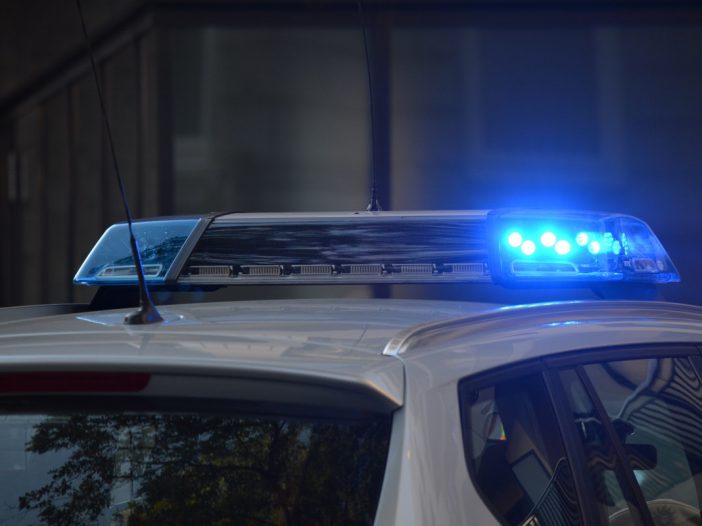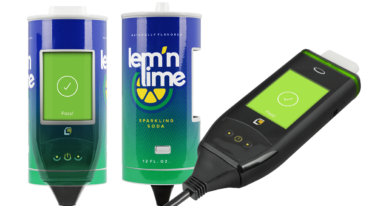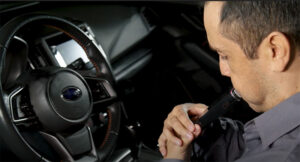
Can You Refuse a DUI Checkpoint?
Do you know what your legal rights are when you are in a sobriety checkpoint? Many people don’t, which can lead to confusion on what to do when you are confronted by a sobriety checkpoint. Sobriety checkpoints, commonly referred to as DUI checkpoints, are a law enforcement action that is used to combat drunk driving. DUI checkpoints aren’t seen all the time, and they aren’t even used in every state. The use of sobriety checkpoints isn’t accepted across all communities, and their effectiveness has been contested as well.
Given the controversial nature of sobriety checkpoints, it is understandable thatmany people aren’t sure if they can refuse a sobriety checkpoint. In thisarticle, we’ll discuss what your legal rights are when it comes to acheckpoint. We’ll look at the legality of checkpoints themselves, why they areused, and what steps you can take if you don’t want to be involved in one.
Throughout this article, we’ll be exploring DUI checkpoints in general terms, and while wewill look at specific laws in certain states we won’t provide an exhaustiveanalysis of your legal rights in every state. DUI laws can vary substantiallyby state. This includes whether the state you live in uses sobrietycheckpoints, and what your rights are once you enter a checkpoint. In order foryou to have the most accurate picture possible of what your rights are when itcomes to refusing to comply with a sobriety checkpoint, be sure to check yourstate’s legal code.
What is a DUI Checkpoint?
If you’ve ever passed through a border crossing between state lines orinternational boundaries, then you probably have a good sense of what acheckpoint is. Sobriety checkpoints are similar to other types of staticcheckpoints but different in key ways. Like other types of checkpoints, asobriety checkpoint involves a law enforcement authority screening vehicles ona highway. In a sobriety checkpoint, police officers are typically looking forobvious signs of impairment. While officers in a sobriety checkpoint will alsoverify that a driver’s license is valid and that their vehicle’s registrationis current, this usually isn’t the primary purpose of the checkpoint. Rather,sobriety checkpoints are used to deter drunk driving through highly visiblepolice action.
Sobriety checkpoints are unique in a couple of ways. Sobriety checkpoints are temporaryand mobile. Although most sobriety checkpoints must be approved at a commandlevel ahead of time and have a specific justification for being carried out ina certain area, they exist only for a short period of time, usually only acouple of hours. Sobriety checkpoints are also most often accompanied by sometype of specialized equipment, such as a mobile testing unit. In general, asobriety checkpoint is also advertised ahead of time through a number of mediasources, such as social media and a local newspaper, and the entrance to thecheckpoint is clearly marked with highly visible signage.
Are They Legal?
If you are wondering can yourefuse dui checkpoint based on the underlying legality of the checkpointitself, the answer is that you can’t. Sobriety checkpoints have been found tobe legal, at least at a federal level. Specifically, in the Supreme Court case Michigan Department of State Police v. Sitz,the court found that sobriety checkpoints were legally permissible. The casecentered around whether sobriety checkpoints violated an individual’s FourthAmendment rights against illegal search and seizure. The court had to weigh anumber of competing interests in order to arrive at a judgment, and theseinterests are useful to consider if you are wondering about the legality of acheckpoint. The court weighed the interest of the state in preventing deathsand accidents that result from drunk driving, the effectiveness of sobrietycheckpoints in deterring impaired driving, and the level of intrusion thesobriety checkpoint had on the lives of each motorist involved.
The questions considered by the Supreme Court are not easy, and in some ways arestill being contested in states that don’t utilize sobriety checkpoints.Ultimately, however, the Supreme Court found that the use of sobrietycheckpoints didn’t violate the Fourth Amendment rights of motorists, and sothey are permissible under federal law. Currently, sobriety checkpoints are inuse in 37 states, plus the District of Columbia, Northern Mariana Islands, andthe Virgin Islands. There are currently13 states that don’t allow the use of sobriety checkpoints for a variety ofreasons. Most are due to the fact that sobriety checkpoints violate either thestate’s constitution or laws. In the state of Texas, sobriety checkpointsaren’t allowed because the state’s highest court found that they violatedTexan’s Fourth Amendment rights, in contradiction to the higher court’s ruling.
Suffice it to say that sobriety checkpoints are legal. Some groups have mistakenlyargued that individuals should refuse to comply with a sobriety checkpoint onthe basis that they are illegal. Unless your state explicitly prohibits the useof sobriety checkpoints, or the sobriety checkpoint is conducted in an illegalmanner, refusing to comply with the checkpoint will most likely result in legaltrouble. As always, the best advice if you are unsure of the legality of asobriety checkpoint in your specific area is to do your own research or consultwith a lawyer beforehand.
What Are Your Rights in a DUI Checkpoint?
From the outset, understand that your rights in a sobriety checkpoint can varysubstantially depending on what state you are living in. Know and fullyunderstand your rights for the specific state you live in. That being said,there are some general things that can be said about your rights in a DUIcheckpoint. As we have mentioned, sobriety checkpoints were found to notviolate an individual’s Fourth Amendment rights. What this means is that yougenerally can’t refuse to comply with a DUI checkpoint. Once you enter acheckpoint, you will almost certainly have to comply with the instructions oflaw enforcement.
In California, the requirement to comply with police officers is known as impliedconsent and is found in the state’s vehicle code. Most other states that operate sobriety checkpoints also have similarrequirements. For example, most states have penalties for an individual thatrefuses a chemical test once they have been arrested. In California, it ispermissible to refuse a chemical test, such as a breathalyzer, before you havebeen arrested but doing so after you have been arrested can result insubstantial penalties. Keep in mind, however, that police officers utilizechemical tests such as swabs and breathalyzers as one method of determiningimpairment. Other field sobriety tests can be used to demonstrate sufficientimpairment for an arrest. Simply refusing to leave your vehicle or cooperatewith a police officer at all is generally not permissible in the context of a sobriety checkpoint.
While you might not be able to refuse an officer’s instructions once you enter asobriety checkpoint, you can avoid them entirely. In most states, it is legalto avoid a sobriety checkpoint entirely if you want to. Some areas requiresobriety checkpoints to be set up in areas where drivers have a clear alternativeroute open to them. This essentially makes it an individual’s choice aboutwhether to take part in the sobriety checkpoint or drive another route. In somestates, you can turn around rather than enter a sobriety checkpoint, providedit would be legal for you to perform a turn in that location anyway.
A second way that you can avoid sobriety checkpoints is to pay attention to yourlocal newspaper, television news station, or the social media accounts of yourlocal law enforcement. A universal feature of sobriety checkpoints is that theyare heavily advertised beforehand. While motorists may not know exactly whatstreet a sobriety checkpoint is on, if they pay attention they will know thedate it is planned and the city it is planned in. So, if you object to the useof sobriety checkpoints from an individual rights perspective, or you don’twant to go through one for some other reason, you are better served avoidingthem entirely rather than attempting to refuse to comply once you have entered one.
Is There a Good Reason for SobrietyCheckpoints?
One misconception about sobriety checkpoints is that they are intended to producearrests for drunk driving. One of the criticisms of sobriety checkpoints isthat they fail to produce a large number of arrests and that the resources usedin the checkpoint would be put to better use elsewhere. The reason DUIcheckpoints are advertised is that their primary purpose is to deter peoplefrom drinking and driving, not necessarily to produce arrests. While arrestsmade for drinking and driving during the course of a checkpoint are usuallypublicized afterward as a deterrent, they aren’t the main focus. Sobrietycheckpoints themselves are intended to elevate the risks of being arrested fordrinking and driving, in the minds of motorists, before impaired driving hasoccurred. The thought process is that if an individual believes that they aremore likely to be arrested for drunk driving, and the consequences of thatarrest are high enough, then they are more likely to not drive under theinfluence in the first place.
Whether or not you agree with the idea of sobriety checkpoints, there is an extensivebody of literature that indicates they are an effective deterrent for impaireddriving. Measuring how effective they are is difficult. One study found that aseries of sobriety checkpoints conducted in downtown Indianapolis over thecourse of a year reduced impaired driving in the downtown area. At the sametime, those checkpoints didn’t reduce impairment outside of the downtown area.This seems to indicate that checkpoints are effective at reducing impaireddriving only in the immediate vicinity of the checkpoint, or rather wheredrivers believe they are more likely to run into a checkpoint.
Remember that not all states allow sobriety checkpoints. Texas is one such state. InTexas, sobriety checkpoints aren’t allowed because they are considered toviolate an individual’s Fourth Amendment rights against illegal search andseizure under the U.S. Constitution. Interestingly, two cities in Texas,Houston and Dallas / Fort Worth, were found to have the highest rate of drunk driving fatalities in the country.Within Texas, many law enforcement agencies have been requesting the ability toconduct sobriety checkpoints for years but have yet to get approval. Thestaggering toll of drunk driving is well known to law enforcement andindividuals that live in these areas, and sobriety checkpoints are viewed as a necessary tool in combating the threat.
Final Thoughts
Sobriety or DUI checkpoints are one strategy many law enforcement agencies use today tocombat drunk or impaired driving. Often, sobriety checkpoints are used inconjunction with other enforcement methods, such as saturation patrols in whicha large number of officers patrol an at-risk area for a period of time.Although sobriety checkpoints are widely recognized as being effective atdeterring drunk driving, their use isn’t uniform in the United States. Eachstate chooses whether to use sobriety checkpoints, as well as the circumstancesunder which a motorist might refuse to comply with the checkpoint.
While the laws regarding sobriety checkpoints can vary substantially depending on thestate you live in, in general, once you enter a sobriety checkpoint you mustcomply with any instructions you receive from law enforcement officers. Thatbeing said, many people who don’t agree with sobriety checkpoints or don’t wantto take part in one simply avoid them. Sobriety checkpoints are widelyadvertised beforehand and are usually clearly marked with signage indicatingthat you are about to enter a checkpoint. Avoiding a DUI checkpoint is usuallya better course of action than refusing to comply once you are in one, but besure to check with the laws in your specific state before choosing eithercourse of action.
Sources
- https://www.law.cornell.edu/supremecourt/text/496/444
- https://scocal.stanford.edu/opinion/ingersoll-v-palmer-30801
- https://www.ghsa.org/state-laws/issues/sobriety%20checkpoints
- https://www.nhtsa.gov/sites/nhtsa.dot.gov/files/documents/812420-determine-effective-flexible-checkpts.pdf
- https://www.cdc.gov/motorvehiclesafety/calculator/factsheet/checkpoints.html


